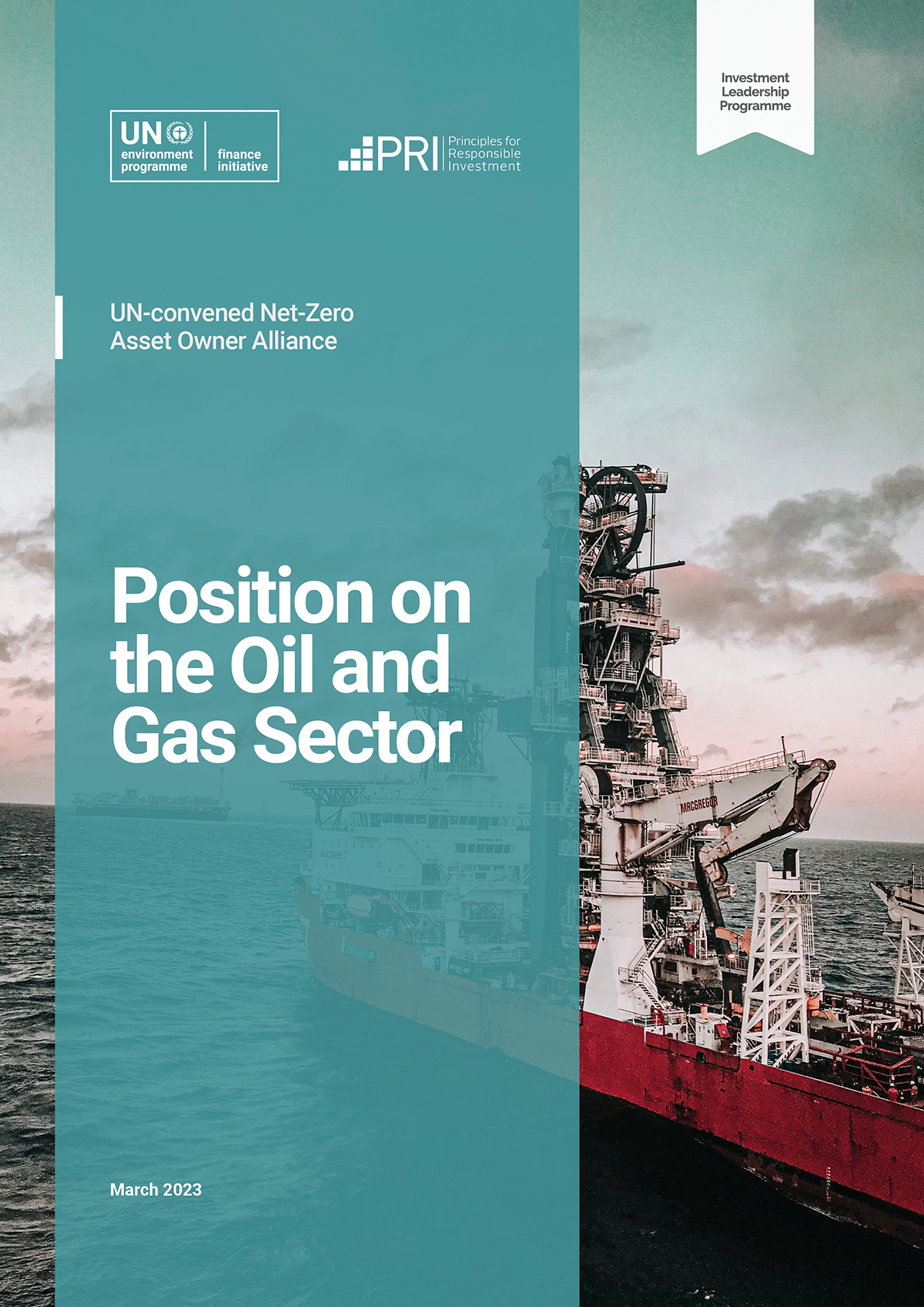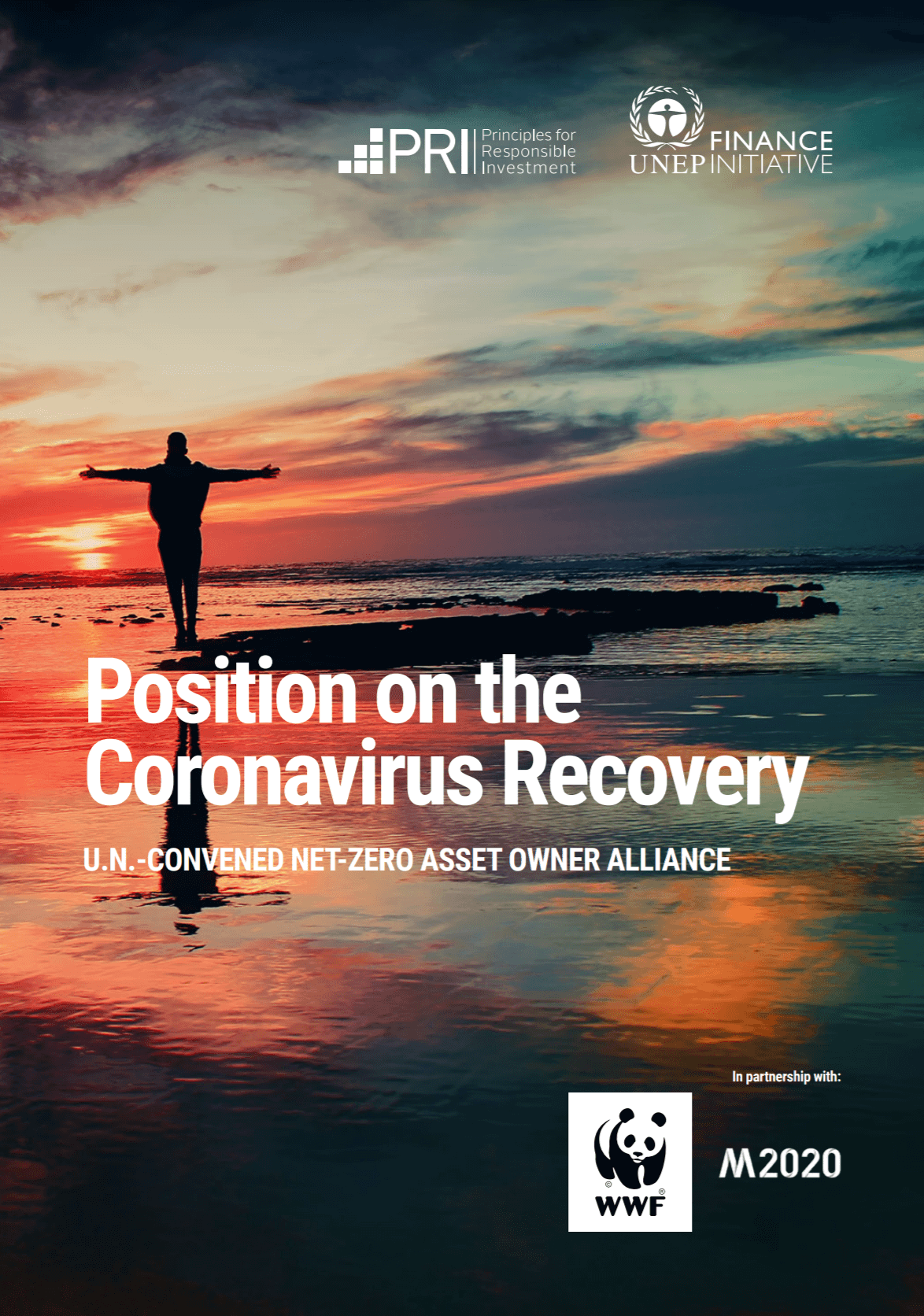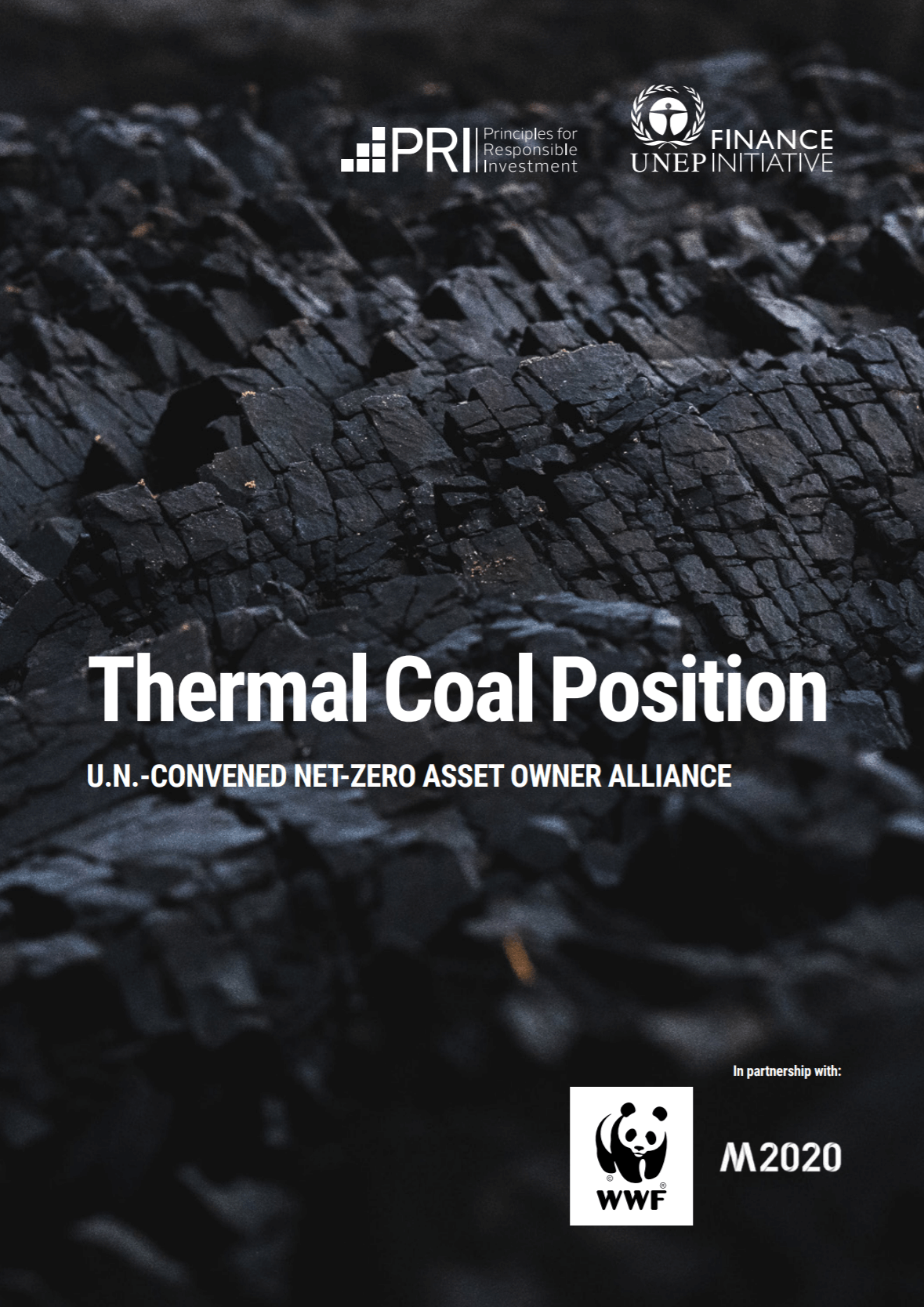All members of the Net-Zero Asset Owner Alliance (Alliance) have committed to achieving net-zero greenhouse gas (GHG) emissions in their portfolios by 2050, while also emphasizing emissions reduction in the real economy. To meet their individual commitment, members consult Alliance advisers to create internal expectations for the membership and external expectations for corporates, asset managers, policymakers, and other stakeholders.
Formulating internal and external expectations through positions
Guidelines for members are encompassed in two types of documents:
- the Alliance’s Target Setting Protocol (TSP), which provides the framework for members to set near-term, portfolio-wide targets, and
- the Alliance’s positions, which express its collective perspective on specific and focused topics that are central to the fulfillment of the commitment.
The TSP and the positions both represent binding approaches of the Alliance, as stipulated by the Governance Document. Regarding positions, the Alliance’s governance embeds a time-bound “comply or explain” expectation for members. This means that, informed by the Alliance’s Position, members are required to “where applicable, [adopt or publish] a corresponding individual investment policy or approach”. If a member cannot develop an aligned position within 12 months, the member is required to explain why that is the case.
List of Alliance positions
Updated Position on Governmental Carbon Pricing
Building on its original 2022 position, the Alliance uses new data on the spread, coverage, and effectiveness of carbon pricing instruments globally to reiterates its call to policymakers—follow through on your Paris Agreement commitments and integrate carbon pricing into your climate policy toolkits, following these five design principles:
- Ensure appropriate coverage and ambition
- Deliver a just transition
- Provide a predictable price signal
- Minimise competitive distortions, and
- Promote international cooperation.
Position on the Oil and Gas Sector
This Net Zero Asset Owner Alliance’s Position on the Oil and Gas Sector underscores the Alliance’s stance that it is necessary for the global economy to transition away from activities that contribute to climate change, such as the combustion of oil and gas.
Recognising that numerous challenges of transitioning to a low-carbon economy can only be mitigated by a concerted effort of the key stakeholders, the Position is expressed in the form of expectations for investors, companies, and policymakers.
In total, the position covers over 20 expectation, which are also summarised in the Q&A document.
Position on the Coronavirus Recovery
The Alliance recognised that the recovery planning from the coronavirus pandemic is a historic opportunity to get back on track with climate goals and accelerate the transition to a zero-carbon economy by 2050.
Thesegovernment spending and recovery packages must not only be effective in restarting the economy but also in creating a sustainable economy of the future, which includes the imperative to reduce emissions and uphold the Paris Agreement. The alternative, implementing spending programs without 1.5°C-aligned policies, means potentially committing economies to an unsustainable path that will constrain future efforts to change course.
Thermal Coal Position
This position solidifies the Alliance’s commitment, especially in the context of thermal coal, to support corporate action and ambitious public policy to promote rapid decarbonisation of developed and emerging economies in a socially responsible manner. This position will soon be updated.



